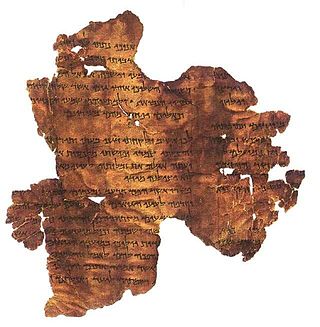
Hosea 1 is the first chapter of the Book of Hosea in the Hebrew Bible or the Old Testament of the Christian Bible. This book contains the prophecies attributed to the prophet Hosea son of Beeri, and this chapter especially sets forth the spiritual whoredom of Israel by symbolical acts. It is a part of the Book of the Twelve Minor Prophets.
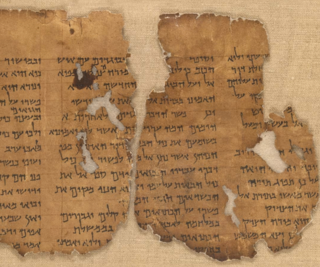
Habakkuk 1 is the first chapter of the Book of Habakkuk in the Hebrew Bible or the Old Testament of the Christian Bible. This book contains the prophecies attributed to the prophet Habakkuk, and is a part of the Book of the Twelve Minor Prophets. This chapter and the next form a unit, which Sweeney sees as "a report of a dialogue between the prophet and YHWH" about the fate of Judah which the biblical scholars, such as F. F. Bruce, label as "the oracle of Habakkuk".
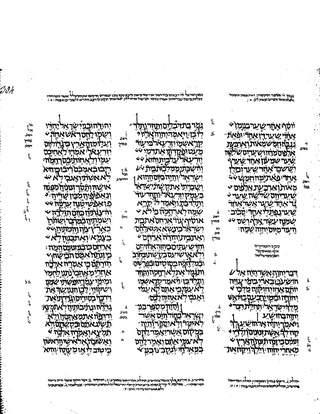
Zephaniah 1 is the first chapter of the Book of Zephaniah in the Hebrew Bible or the Old Testament of the Christian Bible. This book contains the prophecies attributed to the prophet Zephaniah, and is a part of the Book of the Twelve Minor Prophets. This chapter contains a call to penitence and oracles against nations, the editorial superscription and the exposition about the day of Yahweh's judgment against the Kingdom of Judah and Jerusalem.

Micah 7 is the seventh chapter of the Book of Micah in the Hebrew Bible or the Old Testament of the Christian Bible. This book contains the prophecies attributed to the prophet Micah, and is a part of the Book of the Twelve Minor Prophets.
Isaiah 7 is the seventh chapter of the Book of Isaiah in the Hebrew Bible or the Old Testament of the Christian Bible. This book contains the prophecies attributed to the prophet Isaiah and is one of the Books of the Prophets.

Zephaniah 2 is the second chapter of the Book of Zephaniah in the Hebrew Bible or the Old Testament of the Christian Bible. This book contains the prophecies attributed to the prophet Zephaniah, and is a part of the Book of the Twelve Minor Prophets. This chapter contains a call to penitence and oracles against nations.
Isaiah 38 is the thirty-eighth chapter of the Book of Isaiah in the Hebrew Bible or the Old Testament of the Christian Bible. This book contains the prophecies attributed to the prophet Isaiah, and is a part of the Book of the Prophets.

Micah 2 is the second chapter of the Book of Micah in the Hebrew Bible or the Old Testament of the Christian Bible. This book contains the prophecies attributed to the prophet Micah, and is a part of the Book of the Twelve Minor Prophets.

Micah 3 is the third chapter of the Book of Micah in the Hebrew Bible or the Old Testament of the Christian Bible. This book contains the prophecies attributed to the prophet Micah, and is a part of the Book of the Twelve Minor Prophets.
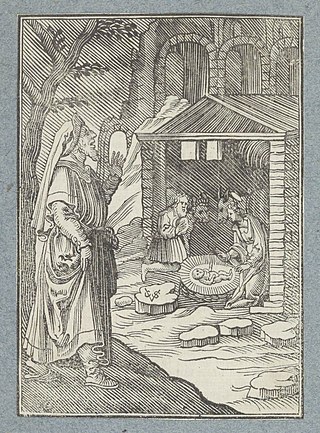
Micah 5 is the fifth chapter of the Book of Micah in the Hebrew Bible or the Old Testament of the Christian Bible. This book ostensibly contains the prophecies attributed to the prophet Micah, and is a part of the Book of the Twelve Minor Prophets.
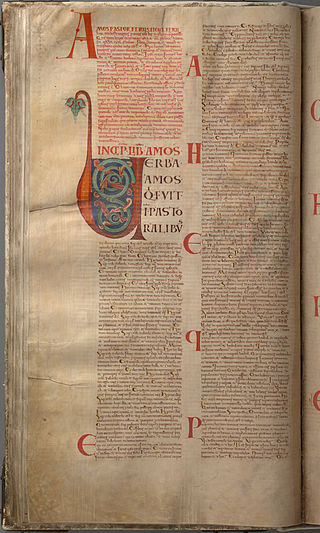
Amos 3 is the third chapter of the Book of Amos in the Hebrew Bible or the Old Testament of the Christian Bible. This book contains the prophecies attributed to the prophet Amos, especially God's extraordinary love, being repaid by Israel with ingratitude, of necessity calls for judgments. It is a part of the Book of the Twelve Minor Prophets.
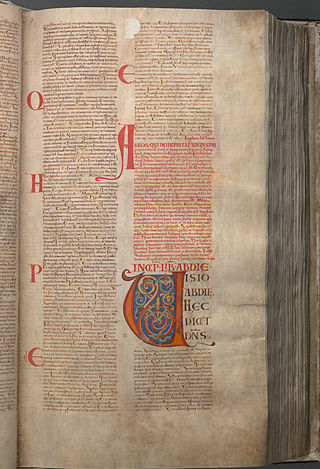
Amos 6 is the sixth chapter of the Book of Amos in the Hebrew Bible or the Old Testament of the Christian Bible. This book contains the prophecies attributed to the prophet Amos, especially denunciation of both the sister nations for wanton security — Zion, as well as Samaria; the voluptuousness of Israel, Amos 6:1–6, shall be punished with desolation, Amos 6:7–11; their perversion of justice and vain confidence shall end in affliction, Amos 6:12–14. It is a part of the Book of the Twelve Minor Prophets.

Amos 7 is the seventh chapter of the Book of Amos in the Hebrew Bible or the Old Testament of the Christian Bible. This book contains the prophecies attributed to the prophet Amos; in particular, the seventh, eighth, and ninth chapters contain visions and their explanations. It is a part of the Book of the Twelve Minor Prophets.

Amos 8 is the eighth chapter of the Book of Amos in the Hebrew Bible or the Old Testament of the Christian Bible. This book contains the prophecies attributed to the prophet Amos; in particular, the seventh, eighth, and ninth chapters contain visions and their explanations. It is a part of the Book of the Twelve Minor Prophets.

Hosea 7 is the seventh chapter of the Book of Hosea in the Hebrew Bible or the Old Testament of the Christian Bible. The book contains the prophecies attributed the prophet Hosea son of Beeri and this chapter is about Israel reproved for multiple sins resulting in God's wrath against them for their hypocrisy. It is a part of the Book of the Twelve Minor Prophets.

Jeremiah 8 is the eighth chapter of the Book of Jeremiah in the Hebrew Bible or the Old Testament of the Christian Bible. This book contains prophecies attributed to the prophet Jeremiah and is one of the Books of the Prophets. Chapters 7 to 10 constitute an address delivered by Jeremiah at the gate of the Temple in Jerusalem.

Jeremiah 17 is the seventeenth chapter of the Book of Jeremiah in the Hebrew Bible or the Old Testament of the Christian Bible. This book contains prophecies attributed to the prophet Jeremiah, and is one of the Books of the Prophets. This chapter includes the third of the passages known as the "Confessions of Jeremiah".

Jeremiah 26 is the twenty-sixth chapter of the Book of Jeremiah in the Hebrew Bible or the Old Testament of the Christian Bible. It is numbered as Jeremiah 33 in the Septuagint. This book contains prophecies attributed to the prophet Jeremiah, and is one of the Books of the Prophets. This chapter contains an exhortation to repentance, causing Jeremiah to be apprehended and arraigned ; he gives his apology, resulting the princes to clear him by the example of Micah and of Urijah, and by the care of Ahikam.

1 Kings 22 is the 22nd chapter of the First Book of Kings in the Old Testament of the Christian Bible or the first part of Books of Kings in the Hebrew Bible. The book is a compilation of various annals recording the acts of the kings of Israel and Judah by a Deuteronomic compiler in the seventh century BCE, with a supplement added in the sixth century BCE. This chapter belongs to the section comprising 1 Kings 16:15 to 2 Kings 8:29 which documents the period of Omri's dynasty. The focus of this chapter is the reign of king Ahab and Ahaziah in the northern kingdom, as well as of king Jehoshaphat in the southern kingdom.

2 Chronicles 28 is the twenty-eighth chapter of the Second Book of Chronicles the Old Testament in the Christian Bible or of the second part of the Books of Chronicles in the Hebrew Bible. The book is compiled from older sources by an unknown person or group, designated by modern scholars as "the Chronicler", and had the final shape established in late fifth or fourth century BCE. This chapter belongs to the section focusing on the kingdom of Judah until its destruction by the Babylonians under Nebuchadnezzar and the beginning of restoration under Cyrus the Great of Persia. The focus of this chapter is the reign of Ahaz, king of Judah.












